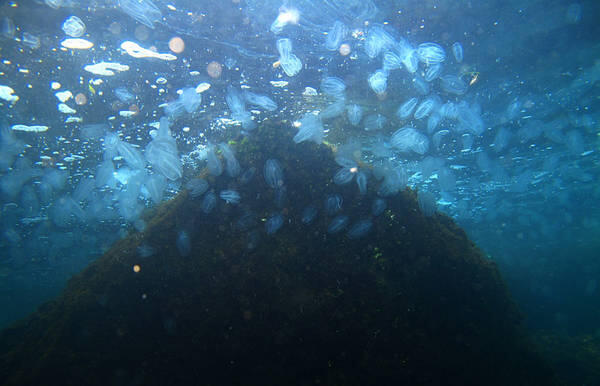Mediterranean sea water temperatures have been warmer than average for months due to this summer’s heatwave and there is a risk of toxic algae and damage to sea life if the situation persists, according to marine biologist Marco Faimali of the national research center CNR in Genoa.
Faimali said the ”sea’s temperature has been warmer than usual for months. The reproduction of several species occurred a month, a month and a half in advance. Jellyfish arrived beforehand, in the spring. We are at the limit. If the climate goes back to normal immediately, with rain and storms, there will be no consequences. But if the heat persists there will be damages to the ecosystem, mostly to gorgonian, corals and other filtering organisms like mussels. Fish can move to cooler water, deep down or in the open sea, while these organisms can’t move.
We are monitoring the situation”.
The exceptional heat can also lead to the formation of ‘ostrepsis ovata’, a toxic alga that causes dermatitis, eye infection and respiratory problems.
Faimali said the damages caused by the summer’s heatwave can then be reabsorbed in the fall.
”There is however a long-term tropicalization of the Mediterranean due to climate change”, the researcher explained.
”Southern Mediterranean species have settled also in the North.
The most notable example is the barracuda which is common even in Portofino”.
Source: http://bit.ly/2uo04Og











